Current Advisory Board Members
SGAC’s Advisory Board is designed to give strategic direction and advice to SGAC in order to help guide the organisation in its fulfillment of its goals and objectives. It provides comment substantively on the work of the organisation and suggests ways in which to improve its functions and its engagement. The board is composed of twelve board members, each of whom serves for a one-year term. Our Advisory Board members are influential members of the international space community who have been strong supporters of the goals of SGAC and of the organisation itself.
Members in alphabetical order:
| Harriet Brettle | Executive Director of the Keck Institute for Space Studies |
| Steve Eisenhart | Senior Vice President – Strategic & International Affairs, Space Foundation |
| Debra Facktor | Head of US Space Systems, AIRBUS U.S. Space and Defense |
| Steven Freeland | Professor of International Law at Western Sydney University |
| Ian Grosner | Legal Counsel and Head of the Legal Services department at the Brazilian Space Agency (AEB) |
| Hamza Hameed | Senior Practice Manager at Access Partnership |
| Andrea Jaime | Institutional BD and Sales Manager, Isar Aerospace |
| Peter Martinez | Executive Director of the Secure World Foundation |
| Valanathan (Val) Munsami | Deputy CEO, Saudi Space Agency (SSA) |
| Nobu Okada | Founder and CEO, Astroscale |
| Davide Petrillo | Managing Director, Voyager Technologies Europe |
| Kai-Uwe Schrogl | President of the International Institute of Space Law (IISL) |
| Maria-Gabriella Sarah | Director General’s Services – Strategy and Development, European Space Agency (ESA) |
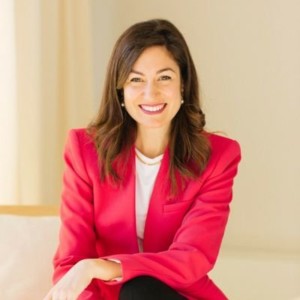
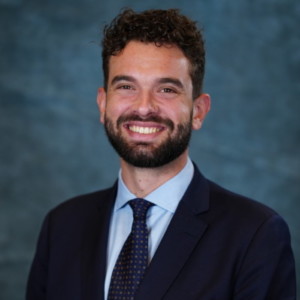
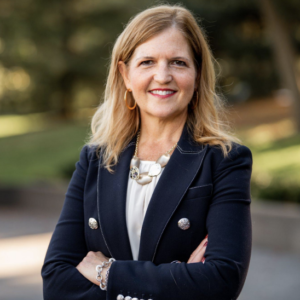
Davide brings with him a wealth of experience in the aerospace industry, having previously worked as a business manager for Alten Ltd in London and as a business analyst for Accenture in Milano.
Debra Facktor is the Head of U.S. Space Systems for Airbus U.S. Space & Defense, Inc. As
such, she is responsible for managing the two businesses within U.S. Space Systems: National
Security Space and Space Exploration. Debra is also on the board of Airbus OneWeb Satellites,
a joint venture operating a state-of-the-art satellite manufacturing facility.
Prior to joining Airbus U.S., Debra was Vice President and General Manager of Strategic
Operations for Ball Aerospace, leading the company’s Washington DC operations, strategic
development, and marketing and communications. Her extensive business experience includes
serving as President and Owner of AirLaunch LLC, and as Vice President of Business
Development and Strategic Planning for Kistler Aerospace Corporation.
Debra is actively engaged as an advisor and mentor in the aerospace community and is a fellow
of the American Institute of Aeronautics and Astronautics (AIAA) and the American
Astronautical Society (AAS). She sits on the University of Michigan aerospace engineering
Industrial Advisory Board, the Advisory Committee for the Intelligence and National Security
Alliance (INSA), and the Future Space Leaders Foundation board. She is also an academician
of the International Academy of Astronautics (IAA).
Debra received her bachelor’s and master’s degrees in aerospace engineering from the
University of Michigan, and is an alumna of the International Space University summer session
program in Strasbourg, France.
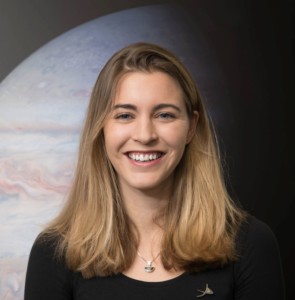
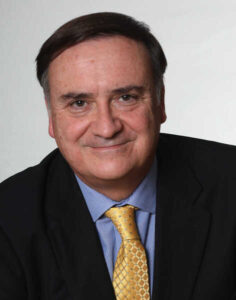
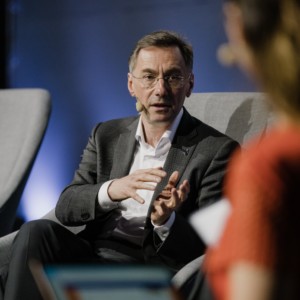
Harriet Brettle is the Head of Market Analysis and Business Intelligence at the European Space Agency in the Connectivity & Secure Communications (CSC) directorate. In this role, she is responsible for analysing the dynamic satellite communication market, assessing trends and opportunities, and understanding their impact on the European satcom sector. Harriet is a co-founder of the London Space Network, organising monthly networking events to strengthen the UK space community. She is a member of the International Astronautical Federation’s Entrepreneurship & Investment Committee and Young Professionals/ Workforce Development Committee.
Prior to joining ESA, Harriet was Head of Business Analysis at Astroscale, where she worked to advance commercialisation efforts for debris removal and in-orbit servicing.
Harriet is a long standing member of SGAC and committed its mission to support the next generation of space leaders. She is currently co-lead of the alumni team, and has previously served as Chair (2020-2022), on the SGC organising team, strategic partnerships coordinator, and executive co-secretary.
With a background in finance having worked at the Bank of England and the Federal Reserve Bank of New York, and degrees in planetary science and mathematics, Harriet is passionate about commercial sustainability and emerging market opportunities within the space ecosystem.
Peter Martinez is the Executive Director of the Secure World Foundation. He has extensive experience in multilateral space diplomacy, space policy formulation and space regulation. He also has extensive experience in capacity building in space science and technology and in workforce development. Prior to joining SWF, from 2011 – 2018 he chaired the United Nations Committee on the Peaceful Uses of Outer Space (UN COPUOS) Working Group on the Long-Term Sustainability of Outer Space Activities that negotiated a set of international consensus guidelines to promote the safety and sustainability of space operations. In 2012 and 2013 he was South Africa’s representative on the United Nations Group of Government Experts on transparency and confidence-building measures for space activities. From 2010 – 2015 he was the Chairman of the South African Council for Space Affairs, the national regulatory authority for space activities in South Africa. He is a member of the International Academy of Astronautics, the International Institute of Space Law, a Fellow of the Royal Astronomical Society and an Honorary Professor at the University of Cape Town. He has authored or co-authored over 200 publications on topics in space policy, space sustainability, astronomy, space research, space law and space policy.
Kai-Uwe Schrogl is the President of the International Institute of Space Law (IISL), the global association of space lawyers from more than 50 countries. He served as Chair of the Legal Subcommittee of the UN Committee on the Peaceful Uses of Outer Space (UNCOPUOS), the highest body of space law making, from 2014 to 2016. He works as the Special Adviser for Political Affairs in the European Space Agency (ESA). Most recently, he has been co-editing “A Research Agenda for Space Policy” at Edward Elgar Publishing.
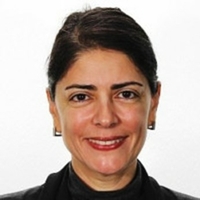
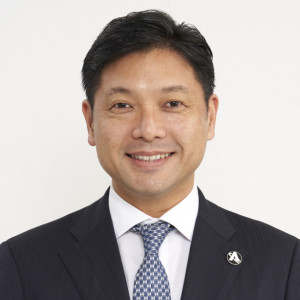
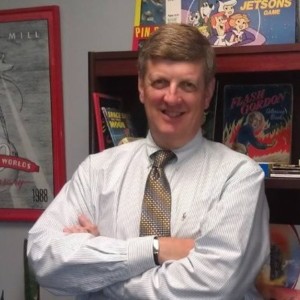
Maria-Gabriella Sarah has a MSc in electrical engineering and has been working in American
Consultancies before joining the European Space Agency (ESA) in 2002.
After a start in the Science Directorate, she held the position of first Agency Risk Coordinator
(Chief Risk Officer) at ESA developing and implementing at Corporate level the Agency Risk
Management framework ESA is using today. She has founded and chaired several networks of
Risk Management practitioners, within and outside ESA.
She is now in charge of Partnerships with non-space businesses. In that context she has
supported the setting up of the Sustainable Development Goals catalogue ESA has put in place
to gather all space projects helping achieve the 17 United Nations SDG’s.
She is the Entrepreneurship Risk Management Committee chairperson at the International
Astronautical Federation (IAF). Since September 2022, she was elected a full member of the
International Academy of Astronautics (IAA) and is co-leading a global study on the socio-
economic impacts of New Space.
Nobu founded Astroscale in Singapore in 2013 due to a strong desire to address the growing threat of space debris. He used his personal funds as seed money and hired a team in Singapore in 2013 and opened an R&D office in Japan in 2015, a UK office in 2017, and a US office in 2019 whilst raising US $140M capital. The team call themselves, “Space Sweepers” and their mission is to secure long-term space flight safety by developing space debris removal technologies.
Nobu is a Fellow of the Royal Aeronautical Society and is also a member of The Future of Space Technologies Council, World Economic Forum and International Astronautical Federation. He also served as a member of the Subcommittee on Space Civil Use, and Space Industry at the Cabinet Office for the Government of Japan. Nobu won the Forbes JAPAN “Start-up of The Year 2019” and was listed as Technology Pioneer by the World Economic Forum in 2017.
Prior to Astroscale, Nobu was an IT entrepreneur and strategy consultant, and had managed IT companies in Japan, China, India and Singapore. He led one company to a successful IPO. Before joining the IT industry, he worked for McKinsey & Company and the Japanese Government in the Ministry of Finance. He earned his bachelor’s degree in Agriculture from the University of Tokyo in 1995 and an MBA from the Krannert School of Business, Purdue University in 2001.
When he was a teenager, Nobu attended a camp at NASA’s Marshall Space Flight Center in the United States where he met Japan’s first astronaut, Mamoru Mohri. He received the handwritten message, “Space is waiting for your challenge.” and he has been inspired to work on space ever since.
As head of international affairs, Steve Eisenhart is principally responsible for the Space Foundation’s global strategy and relationships with international space agencies and organizations, foreign embassies and U.S. organizations involved with global space programs. He is directly responsible for the program development and integration of key Space Foundation activities including the annual Space Symposium. He also supervises the Space Foundation’s government affairs activities in the Washington, D.C., office including relationships with government agencies, other space advocacy organizations and associations and corporate interests. Since joining the Space Foundation in 1996, Eisenhart has had a broad range of responsibilities, serving as senior vice president of strategic communications, director of communications and public affairs and communications manager. Eisenhart was a military public affairs official and is a graduate of the United States Military Academy at West Point.
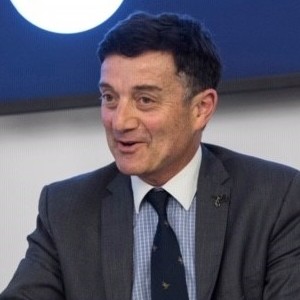
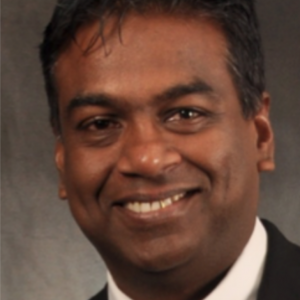
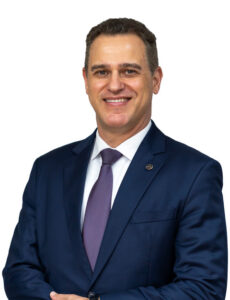
Steven Freeland is Emeritus Professor of International Law at Western Sydney University, where he was previously the Dean of the School of Law, and Professorial Fellow at Bond University. He also holds Visiting or Adjunct positions at various other Universities/Institutes in Copenhagen, Vienna, Toulouse, Hong Kong, Montreal, Kuala Lumpur, Vancouver, Mumbai and London. Prior to becoming an academic, he had a 20-year career as an international commercial lawyer and an investment banker. He is a government-appointed Member of the Australian Space Agency Advisory Board and has been an advisor to the Australian, New Zealand, Norwegian and several other Governments on issues relating to national space legislative frameworks and policy. He represents the Australian Government at Committee on the Peaceful Uses of Outer Space (UNCOPUOS) meetings and, in June 2021, was appointed by UNCOPUOS as Vice-Chair of a 5-year ‘Working Group on Legal Aspects of Space Resource Activities’. He has also been a Visiting Professional within the Appeals Chamber at the International Criminal Court, and a Special Advisor to the Danish Foreign Ministry in matters related to the International Criminal Court. He is a co-Principal of specialised space law firm Azimuth Advisory, a Member of the World Economic Forum (WEF) Global Future Council on the Future of Space, a previous Director of the International Institute of Space Law (2010-2022), a Member of the Space Law Committee of the International Law Association and a previous Member of the Space Law and War Crimes Committees of the International Bar Association. In 2022, he was presented with a ‘Lifetime Achievement Award’ by the International Institute of Space Law, the highest accolade awarded by that institution. In addition to co-Editing the Annotated Leading Cases of International Criminal Tribunals book series, he also sits on the Editorial Board / Advisory Board of several internationally recognised academic journals.
Dr Munsami holds a PhD in Physics and has a research background in Solid State Physics and Space Physics. His research focus in space physics was on magnetospheric physics, particularly on the use of artificial intelligence and the Super Dual Auroral Radar Network (SuperDARN) for the study of magnetic storms. He also holds a Masters degree in Business Leadership from the University of South Africa, a Space Studies Program Diploma from the International Space University, and a Certificate in International Air, Space and Telecommunications Law from the University of Pretoria.
In 2002, he joined the Department of Trade and Industry, as Deputy Director, working on issues relating to the non- proliferation of weapons of mass destruction and the space sector. In this portfolio he dealt with the import and export of dual-use technologies, relating specifically to nuclear and space technologies. He also provided technical support to the South African Council for Space Affairs.
In 2005, he joined the National Research Foundation, as a Manager, responsible for implementing South Africa’s international science and technology partnerships. He oversaw the implementation of South Africa’s bilateral science and technology agreements, the management of South Africa’s membership to a number of science and technology multilateral fora, and oversight of the South African chapter of the International Scientific Union (ICSU).
In 2007, he joined the Department of Science and Technology as Director (and was later promoted to Chief Director) for Space Science and Technology, where he was involved in the development of South Africa’s National Space Strategy and National Space Policy and oversaw the establishment of SANSA. Within the same institution, he was promoted to Deputy Director- General: Research, Development and Innovation, where he was responsible for Space Science, Radio Astronomy, Biotechnology and Health, Hydrogen and Energy, and Innovations Instruments, which included oversight of SANSA, the Technology Innovation Agency and the
National Intellectual Property Management Office.
On winning the bid to co-host the SKA in 2012, he then became the Chief Specialist for Astronomy and African Space Science. In this role, he led the development of South Africa’s Multi-Wavelength Astronomy Strategy and the SKA Readiness Strategy. He also chaired the African Union Space Working Group, which was tasked with the development of the African Space Policy and the African Space Strategy that was approved by the African Union Heads of State in January 2016. These instruments have now laid the foundation for the African space programme.
As of January 2017, he has been appointed as the Chief Executive Officer (CEO) of SANSA. As CEO, he is responsible for the development and implementation of appropriate strategies for the Agency and developing and maintaining effective management teams and management processes that enable the Agency and the local space sector to function optimally. He is currently a member of the South African Council for Space Affairs (SACSA) and is a Vice President of the International Astronautic Federation (IAF) for Developing Countries and Emerging Nations. He has also been recently inducted as an academician of the International Academy of Astronautics (IAA).
Mr. Ian Grosner is a federal attorney in Brazil. Since 2022, he has been serving as a Legal Counsel and Head of the Legal Services department at the Brazilian Space Agency (AEB), based at its headquarters in Brasilia, Brazil. Mr. Grosner has a Law bachelor degree from the Law School of Centro Universitário de Brasilia – UniCEUB (1997) and a Post-Graduate degree in Public Law at the University of Brasilia – UNB (2012-2014). He also has a master degree (LL.M.) from the University of Leiden (The Netherlands) in Air & Space Law (2017- 2018). He studied at International Space University (ISU) during the Space Studies Program 2022 (SSP). He was Vice-President of the Chair of Air & Space Law from the Bar Association of the Federal District in Brazil (2019-2022). He is also a member of the Space Law Group (NEDE) of the Brazilian Air and Space Law Association (SBDA) and a member of the space law and policy research group at the Catholic University of Santos (Brazil). In 2019-2020 he was a member of the Working Group 12 of the Brazilian Commission for Space Activities, which developed a draft bill of the Brazilian national space law. He has created, coordinated and mediated the first and second Space Law Seminars at the Brazilian Bar Association (OAB) in 2020 and 2021. Also, he gave the first space law course at the Superior School of Lawyers (ESA-DF) in Brasilia (Brazil). Since 2021, he has been the first correspondent of SpaceWatch.Global for Brazil, where he hosts the Space Café Brazil. He is a founding member of IASS – International Academy of Space Studies. He idealized,
organized and formulated the first Brazil’s Post-Graduation Course in Space Law and Policy at the Catholic University of Santos (Brazil), where he is a visiting Professor (Space Law). Since 2021, he has been a full member of the International Institute of Space Law – IISL. In March 2023, he was appointed and elected chair of the Working Group on the Definition and Delimitation of Outer Space of the Legal Subcommittee of the Committee on the Peaceful Uses of Outer Space (COPUOS). In December 2023, he was appointed Head of AEB’s Legal Department. In 2024, he has elected Chair of the IAF Latin-America and the Caribbean Subcommittee.


